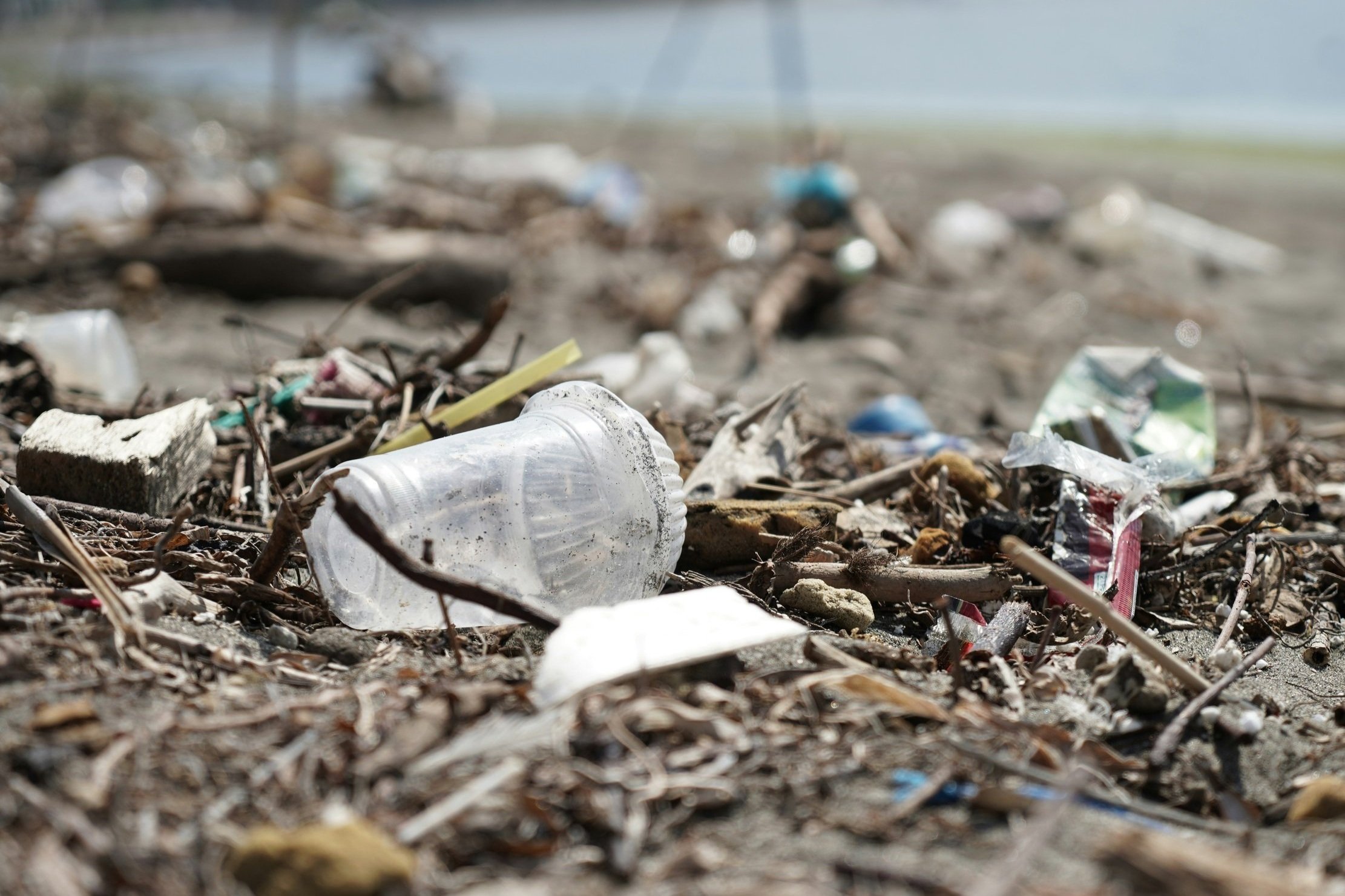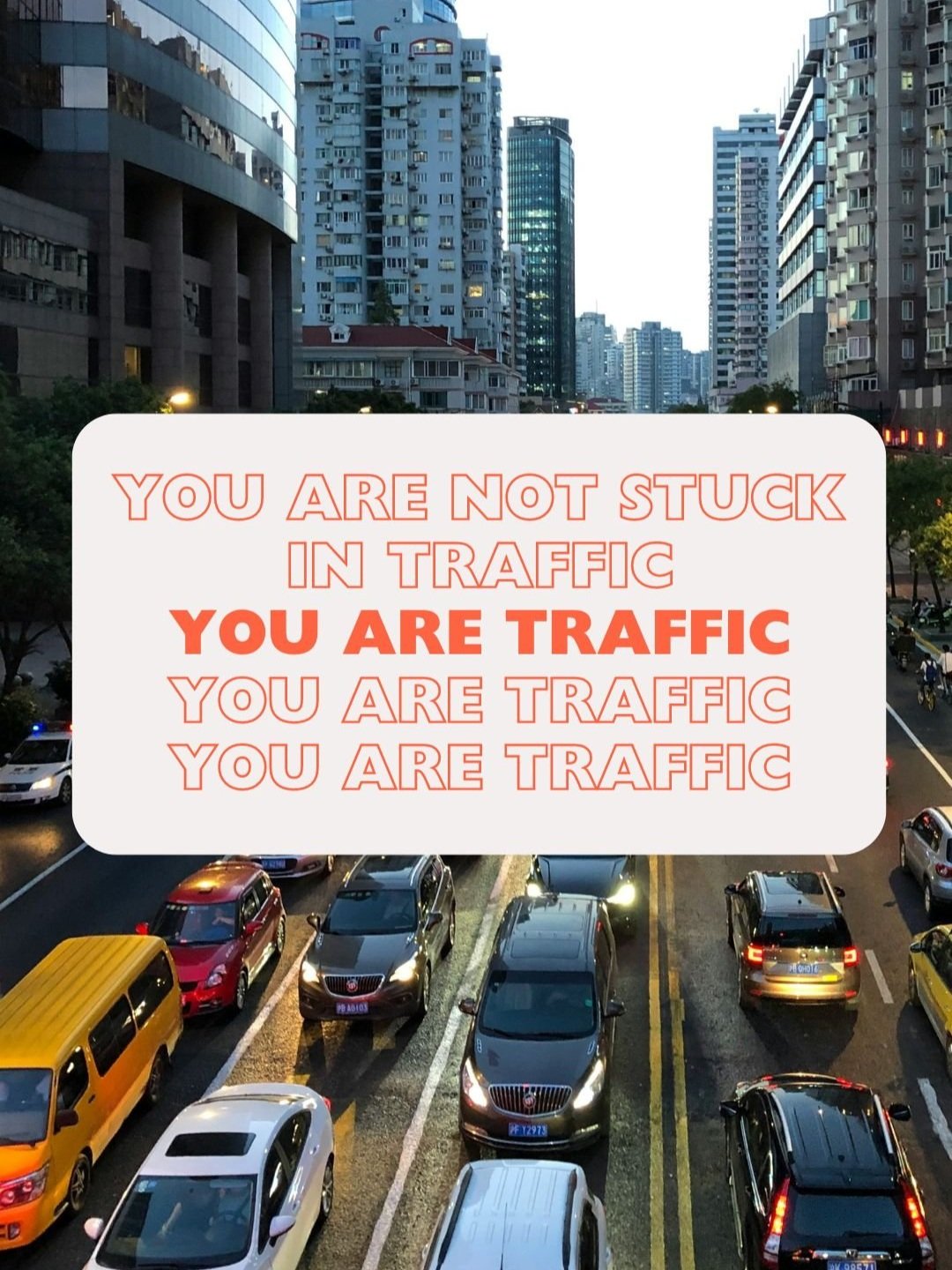Climate Change is Inner Climate Change
“What we are doing to the forests of the world is but a mirror reflection of what we are doing to ourselves and to one another.” -Mahatma Gandhi
It might feel like a stretch to say we can heal the planet just by healing ourselves — but maybe that’s the only way we ever truly will.
When we’re in survival mode — anxious about job security, unable to afford rent, feeling depleted — it’s nearly impossible to make decisions beyond the bare minimum. Forget climate justice; we’re just trying to survive. But a planet that thrives is only possible if its people are thriving too.
Climate change is not just about carbon emissions. It’s also about burnout. It’s about broken systems, disconnection from our food, the stress of living in cities, and the anxiety of not having enough time, money, or energy to care.
When we numb ourselves to our personal needs, we also numb ourselves to the damage around us. If we can’t feel our own pain, how can we feel the pain of the planet?
It’s Not Your Fault — But It Is Your Power
Modern society is designed to keep us reactive: exhausted, overstimulated, isolated, and dependent on a system that rewards overwork and overconsumption. Consumer culture convinces us we need to buy more to feel better, all while stripping away our free time, imagination, and sense of agency. Weapons of mass distraction in the form of movies and tv with no production value (i.e. live remakes of Disney classics) to waste your time and fuel your FOMO, endless podcasts about bio-hacking and “manifestation techniques” that just make you feel less than, and health and exercise “hacks” that just do not work because each of us are built differently. And the worst of all, the endless doomscape of news cycles globally.
But what if we started to question all that?
Sustainability doesn’t begin with guilt or self-denial. It begins with self-worth. It begins when we believe we deserve rest. We deserve beauty. We deserve access to clean food and air, meaningful work, supportive communities, and joyful moments.
When we reconnect to that belief, we naturally begin to shift — in how we spend, how we eat, how we live, and how we travel.
Everyday Acts That Reconnect Us
Something as small as cooking dinner becomes a radical act. Cooking isn’t a chore — it’s an act of love, a way to slow down, nourish ourselves, connect with nature, and break free from the instant gratification loop.
Walking more, taking public transport, learning to fix or mend things, planting herbs on your windowsill — these aren’t solutions to save the world overnight. But they’re ways to reconnect. To remember we’re part of something bigger.
We believe that when people feel cared for — when they feel safe, seen, and grounded — they care more.
And that’s how the inner climate starts to shift.
3 Things To Do to Be Passively Sustainable
-
ECOSIA is the alternative to Google. And it plants trees with every single search.
Simply make it your default browser on your phone. And change browser settings on your computers.
It is the easiest thing to do.
-
Unsubscribe to all email marketing and get to Inbox Zero to reduce your carbon footprint. It is out of sight and out of mind but clouds farms in the middle of the desert consume a lot of energy to store your data.
And on the other hand, the background noise email marketing for things that you do not need and unread emails is stressful whether you realise it or not.
Take the time to clean it all up and your phone will weirdly feel lighter.
And for those of you on social media, only follow your actual friends and accounts that are educational and inspiring or funny. Tip: write down the accounts that you actually remember, unfollow the rest.
-
We often underestimate how powerful walking can be. Integrate walking into your daily routines—whether it’s running errands, commuting part of the way to work, or making time for a gentle stroll after dinner. Walking is good for your physical and mental health, gets you off screens, and reconnects you to the world around you.
Even better? If you’re barefoot on natural ground, you’re also grounding—literally. It’s the simplest, most underrated sustainable act we can commit to.
Invest in a pair of Earthrunners.
3 Simple Changes to Travel More Sustainably
-
I know it is tempting to book the lush accommodation using your credit card points but that is one of the worst contributors to tourism leakage. And when you’re at these all-inclusive resorts, you end up in their ecosystem and miss out on the essence of a place.
Save those points for weekend getaways at home where hotels are not affordable.
-
Invest in gear that will enable you to reduce your single-use plastics.
Bring fewer, better things. And when possible, for shorter trips, only travel with carry-on to reduce your weight.
-
When you’re booking travel or accommodation always choose the most sustainable.
Alternative Airlines prioritises airlines who prioritise the planet.
ECO HOTELS only lists accommodations with sustainable practices.
Support people, not platforms.
Content for Growth
-
Let My People Go Surfing by Yvon Chouinard
The Book of Hope by Jane Goodall
The Nature Fix by Florence Williams
The Lonely Century by Noreena Hertz
Myth of Normal by Gabor Mate
Not The End of the World by Hannah Ritchie
How Bad are Bananas by Mike Berners-Lee
Eat Like a Fish by Bren Smith
This Changes Everything by Naomi Klein
Braiding Sweetgrass by Robin Wall Kimmerer
The Lorax by Dr. Seuss
-
All podcasts linked below to YouTube Channels
And instead of music, try Binaural Beats (Gamma for productivity) or healing house music.
-
Anything with David Attenborough, Jane Goodall, Silvia Earle and Vandana Shiva.
Eating Animals on (Youtube)
Ghost Fleet (Apple TV)
The Story of Stuff (YouTube and their website)
Buy Now: The Shopping Conspiracy (Netflix)
Kiss the Ground (Netflix)
Down to Earth with Zac Efron (Netflix and yes, really — surprisingly thoughtful)
Our Time Is Now
It’s easy to feel overwhelmed by the chaos of the world—wars, wildfires, collapsing ecosystems, rising costs, and broken systems. But perspective matters. Statistically, we are living in the safest, most educated, and most connected era in human history. We have more access to tools, knowledge, and each other than ever before.
That’s why it’s time to stop letting fear drive our choices. Turn off the 24-hour news cycle. Tune into your own rhythm. Learn to cook. Take a walk. Trust that the smallest decisions ripple outward. You don’t have to be perfect to make a difference—you just have to start where you are.
If we each take care of our inner climate—our nervous systems, our communities, our self-worth—we naturally begin to take better care of the outer world too. And that’s where real change begins.
“We but mirror the world. All the tendencies present in the outer world are to be found in the world of our body. If we could change ourselves, the tendencies in the world would also change. As a man changes his own nature, so does the attitude of the world change towards him. This is the divine mystery supreme. A wonderful thing it is and the source of our happiness. We need not wait to see what others do.” -Mahatma Gandhi
TL;DR: Sustainability isn’t just about what we buy or how we travel—it’s about how we feel. When we’re in survival mode, it’s hard to make conscious choices. But when we slow down and reconnect with what matters—through nourishing food, thoughtful travel, or even how we search the internet—we change the world one small shift at a time. This blog shares the mindset behind true sustainability, plus easy ways to get started.











